Latest Studies
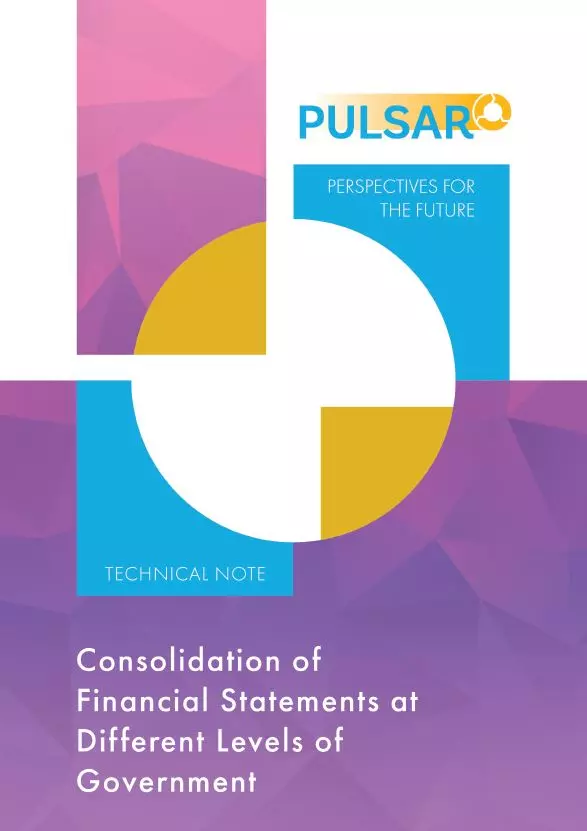
Consolidation of Financial Statements at Different Levels of Government
In the public sector financial management cycle, Public Sector Accounting (PSA) generates the financial reporting that is used as input data for Government Financial Statistics (GFS) preparation. However, a complex reconciliation process is necessary due to the different underlying paradigms between the frameworks used in PSA and GFS. Among these differences are the scope of consolidation/compiling and procedures. PSA consolidation prepared in accordance with International Public Sector Accounting Standards (IPSAS) uses an economic perspective that is based on the concept of control. In turn, GFS compilation under Government Financial Statistics Manual 2014 (GFSM 2014) follows a statistical perspective and delimits the scope by grouping institutional units into sectors and subsectors. In cooperation with the World Bank, ZHAW-IVM developed a knowledge product for the Public Sector Accounting and Reporting (PULSAR) Program to identify, explore, and propose an integrated process to facilitate the consolidation of financial statements in the public sector and the compilation of GFS, considering jurisdictions’ experiences and international good practices from Brazil, Georgia, Spain, and Switzerland. In doing so, the knowledge product highlights some challenges that jurisdictions have faced in the reconciliation process and the means of address.
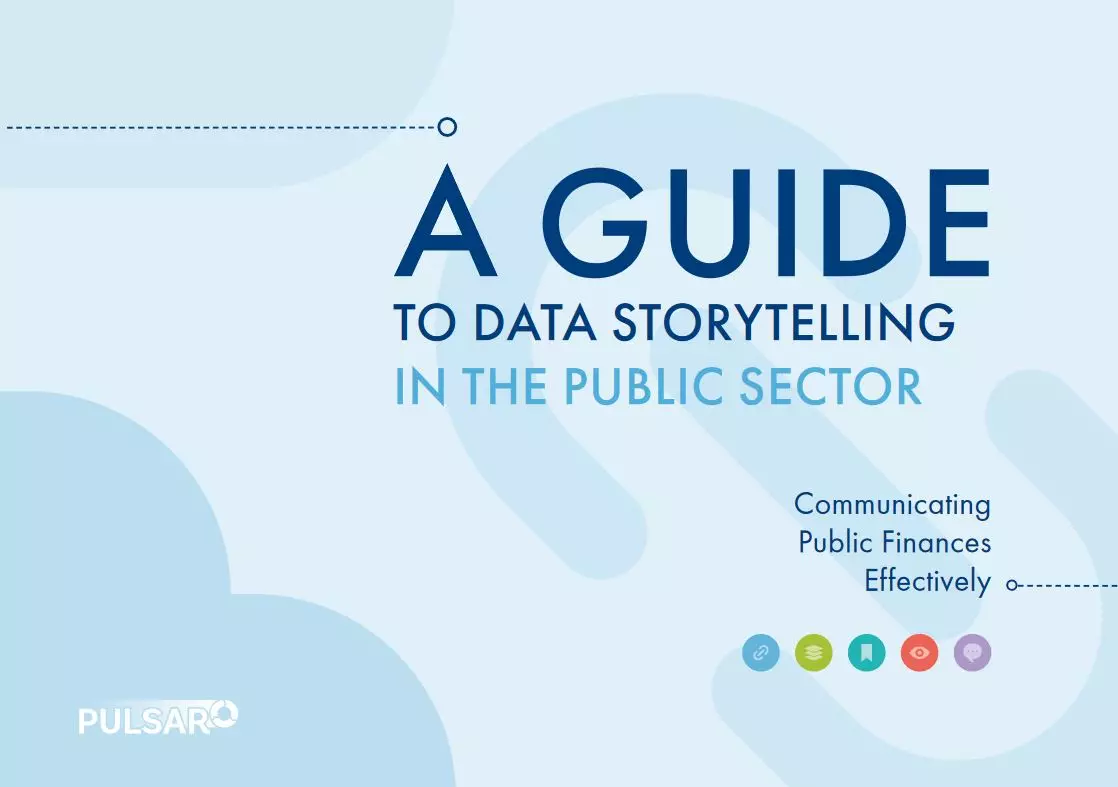
Guide to Data Storytelling in the Public Sector
The “Guide to Data Storytelling in the Public Sector” provides PFM experts with tools, tips, and guidance how to effectively communicate public finances. Data storytelling is the missing link how to make better use of public sector financial data for evidence-based decision making and high-quality service delivery. The Guide offers an engaging user experience and incorporates several technologies, such as augmented reality applications and QR codes leading to an online repository of additional information.
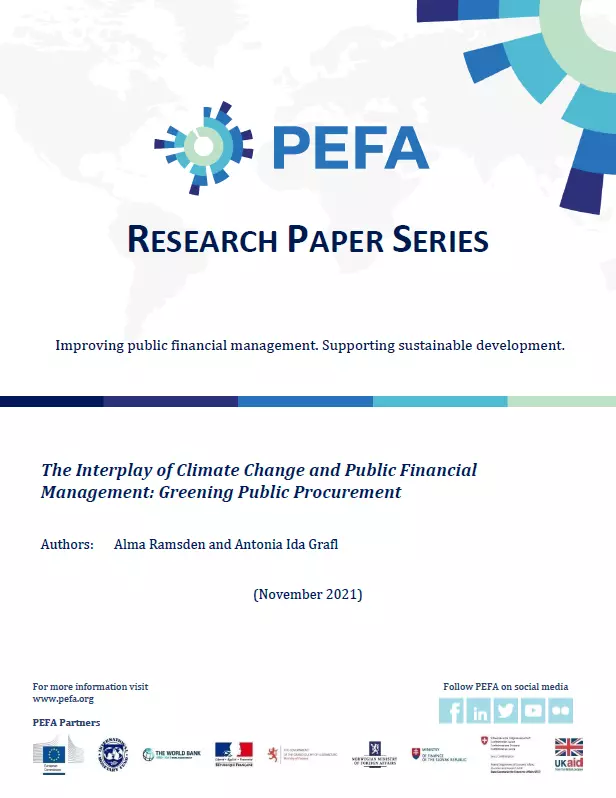
The Interplay of Climate Change and Public Financial Management: Greening Public Procurement
This paper is a product of the PEFA Research Competition 2020: The Interplay of Climate Change and Public Financial Management. The PEFA Research Paper Series provides open access to PEFA-sponsored research to disseminate quickly knowledge that contributes to ongoing discussions about public financial management (PFM) around the world. The broader objectives of the PEFA Research Competition are to contribute to addressing gaps in knowledge on fiscal management, how to improve PFM systems, and the practical implementation of PFM reform. The papers carry the names of the authors and should be cited accordingly. The findings, interpretations, and conclusions expressed in the papers are entirely those of the authors. They do not necessarily represent the views of the PEFA Program or those of the PEFA partners.

New Working Paper Series
Text: We are launching a new working paper series on key topics in the area of public financial management. The first working paper «Environmental Financial Accounting in the Public Sector – A Stocktake of Current Initiatives» adresses the issue of considering climate related financial and non-financial impacts in public sector financial statements.
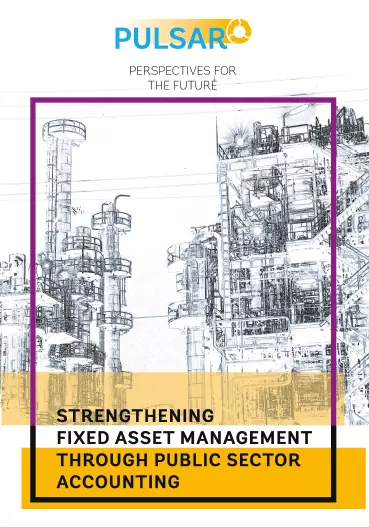
Strengthening Fixed Asset Management Through Public Sector Accounting
Public sector fixed assets (i.p. infrastructures) are key to the delivery of public services and the execution of core government functions. ZHAW-IVM developed a knowledge product for the World Bank Public Sector Accounting and Reporting (PULSAR) Program that elaborates mechanisms through which asset accounting may contribute to optimization of government fixed asset portfolios, their management and maintenance. The paper presents good practices rooted in international country experience and relevant standards, such as the International Public Sector Accounting Standards (IPSAS). It also discusses key issues and challenges related to fixed asset management through the lens of public sector accounting.
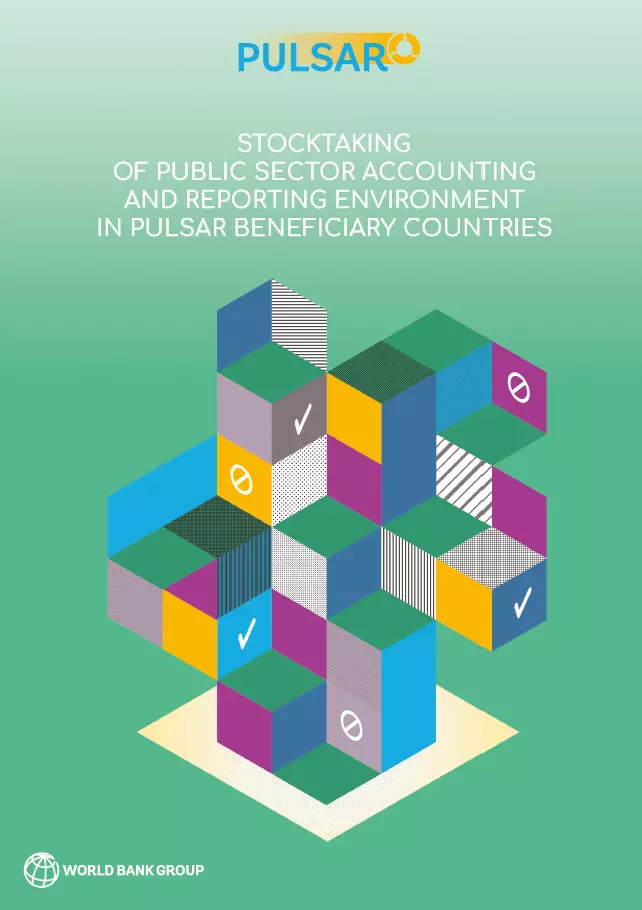
PULSAR PSA Stocktake Paper
In cooperation with the World Bank, the Institute for Public Management (IVM) has prepared a detailed study which analyzes the Public Sector Accounting (PSA) environment of the thirteen beneficiary countries of the World Bank’s PULSAR program from the Western Balkan and Eastern Partnership countries. The objective of the study is to take stock of the current PSA environment by identifying strengths, challenges and opportunities within the PSA framework in each of the PULSAR program countries. Most PULSAR beneficiary countries are in a transitioning process from cash to accrual accounting. Due to limitations of the current accounting systems, they are aiming to change these systems to increase the level of accrual information. This study finds that the PULSAR countries can benefit from many strengths that will facilitate current and future PSA reform ambitions, among others a broad knowledge base and technical expertise in financial planning and budget execution. Nonetheless, the survey reveals certain limitations, which have been identified and grouped into different challenge clusters, relating to political, institutional, technical and human capacities. However, the study also reveals different opportunities to overcome these challenges, including peer learning and rapid feedback loops or common accounting traditions and cultural backgrounds, which facilitate developing joint solutions for similar challenges.
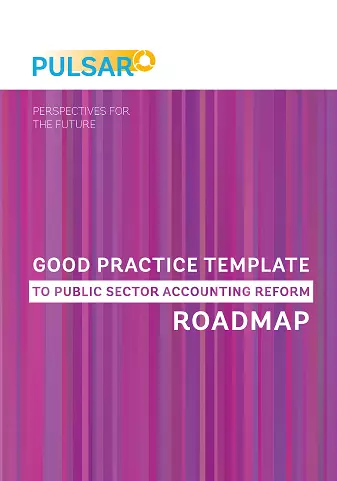
Good Practice Template PSA Reform Roadmap
This report delivers a generic template for public sector accounting reforms. Its core element is a reform roadmap addressing both the complexity of reform processes and the necessity to customize reforms according to the specific circumstances of each individual country. It does so through a multi-layered approach containing 8 steps, which can be repeated as an iterative process as the reform progresses.
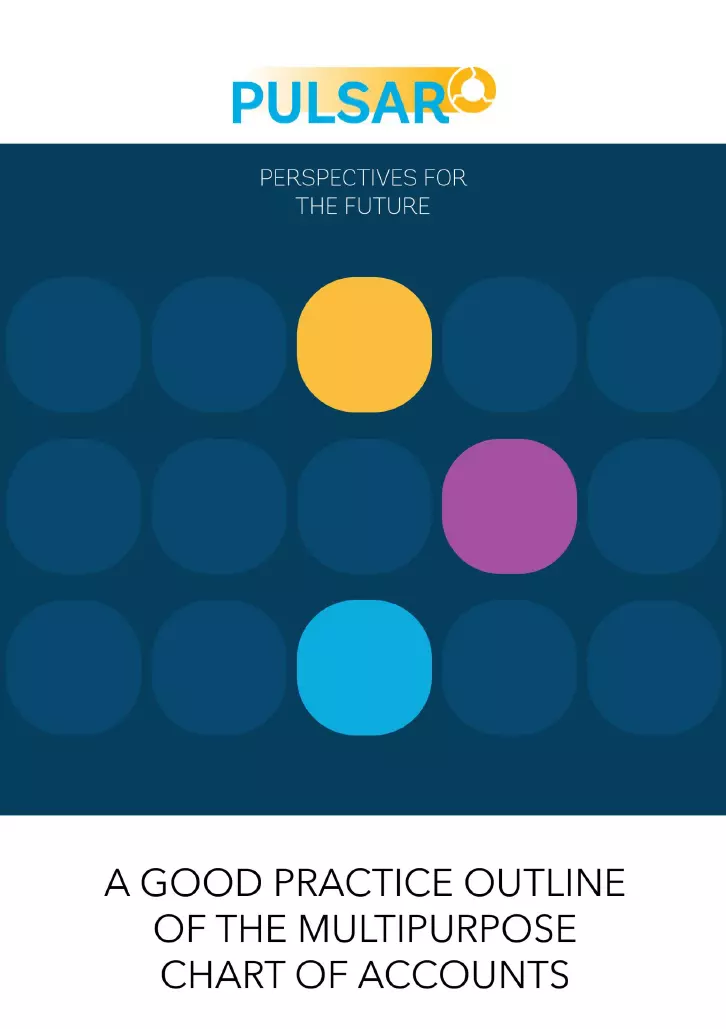
Good Practice Outline Multipurpose Chart of Accounts
Chart of Accounts (CoA) form an important element of any public sector financial management system. In order to deliver the most value, a CoA needs to address a country individual accounting reality and both legal and institutional requirements. This good practice outline provides guidance on how to design CoA that deliver information beyond what is required by law, i.e. for more than a single purpose. Such a multipurpose CoA can provide information for management accounting, performance or budgetary reporting as well as the preparation of IPSAS based financial statements.
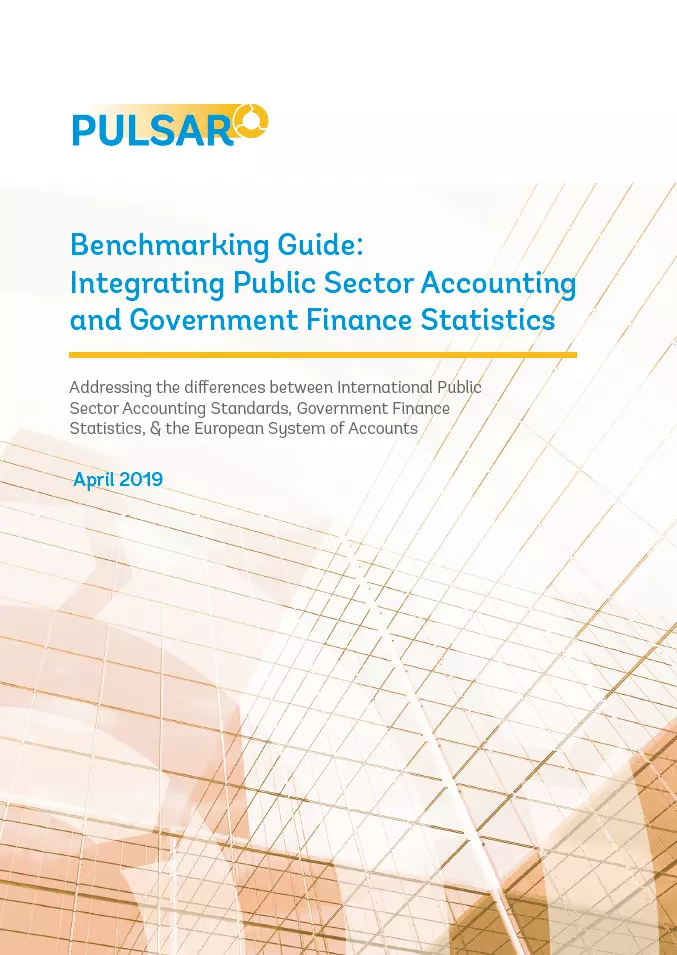
Benchmarking Guide Integrating PSA and GFS
Public Sector Accounting (PSA) and Government Finance Statistics (GFS) fulfil different purposes within a holistic public financial management cycle and accordingly follow different paradigms. PSA focuses on recording and presenting financial information on public sector entities’ financial performance and position, while GFS determines the general government’s impact on the economy and serves as input for macroeconomic reporting. This report delivers guidance on how to integrate best the information provided by PSA and GFS by suggesting tools that can bridge the gap between the two concepts.